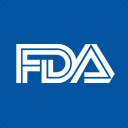 The field of diagnostics is one of the most exciting in medicine and health because of its amazing past, present and future contributions. Diagnostic tools help inform physicians about someone’s current health condition; and, increasingly, they can uncover risk factors that may indicate someone’s probability of becoming ill, prompting both physicians and patients to do something about it.
The field of diagnostics is one of the most exciting in medicine and health because of its amazing past, present and future contributions. Diagnostic tools help inform physicians about someone’s current health condition; and, increasingly, they can uncover risk factors that may indicate someone’s probability of becoming ill, prompting both physicians and patients to do something about it.
 The field of diagnostics is one of the most exciting in medicine and health because of its amazing past, present and future contributions. Diagnostic tools help inform physicians about someone’s current health condition; and, increasingly, they can uncover risk factors that may indicate someone’s probability of becoming ill, prompting both physicians and patients to do something about it.
The field of diagnostics is one of the most exciting in medicine and health because of its amazing past, present and future contributions. Diagnostic tools help inform physicians about someone’s current health condition; and, increasingly, they can uncover risk factors that may indicate someone’s probability of becoming ill, prompting both physicians and patients to do something about it.
We won’t be going into the long and fascinating history of diagnostics, which is highly recommended reading. However, as an example of one simplistic extreme of a diagnostic procedure, when we put our hand to someone’s forehead and get a sense of temperature, we have, in essence, performed a diagnostic test for fever – one that has been used for hundreds if not thousands of years. We similarly rely on many other simple diagnostics such as feeling a pulse, hearing heartbeats and breathing noises via a stethoscope, or shining a flashlight into someone’s eye. These are based on centuries-old tools and devices, but are now seeing a renaissance as they benefit from new sensors and other technologies – enabling a lot of what’s going on in the mobile and digital health spaces. More complex and sophisticated diagnostics include blood tests, tissue sampling and analysis, and sophisticated measuring devices such as EKGs, MRIs, and CAT Scans.
Two important trends in diagnostics are worth discussing here. One is predictive diagnostics and the other is diagnostics for precision-medicine, which is also predictive but its application is a bit different; both are based on DNA analytic technologies.
In the case of predictive diagnostics, the Holy Grail is to be able to tell if one is at a higher risk of acquiring or manifesting a disease well before it happens. The theory and promise is that if you can tell early enough and you do something about it, then you can delay or prevent or reduce the severity of that condition. The advent of not only Total Cholesterol assays and risk stratification, but also of sub-particles and their ratios, such as LDL, HDL, Apo-A1, A1C and so forth have made a huge difference in identifying those at risk for heart disease or diabetes; the task then is to do whatever one can to reduce this risk through diet, exercise and drug therapy. Fortunately, we have seen great therapeutic advances in the last four decades and their use has markedly improved rates of hospitalizations and mortality from cardiovascular disease. Those tests are based on blood chemistry. At the other end of the spectrum, an example of a DNA-based or genetic biomarker is the test for BRCA mutations which identify a subset of patients susceptible to particularly aggressive forms of ovarian and breast cancer; these patients need to be followed more carefully and physicians will likely be more aggressive with their treatment protocols.
To describe the case for precision-medicine, we can use the very same example of the BRCA mutation or other known mutations like EGFR or HER2 or ALK, which not only give information about the susceptibility of a patient to a disease or to its severity, but also help identify which sub-populations will likely respond better to, and therefore be more suited for, specific therapies. Novel biotechnology products, such as trastuzumab (Herceptin, Genentech), have been shown to work particularly well in breast-cancer patients with specific gene mutations identified through these diagnostic tests. The product can then be chosen for use primarily in patients with that positive diagnostic measure and not so in others. This has several benefits; one is cost, in that by choosing to preferentially treat a subset of patients with that product, one does not “waste” resources (and sometimes opportunities and time) on patients who are less likely to respond; second, it exposes fewer patients to unwanted side-effects which affects the overall cost-benefit equation of drug therapy.
This field is most exciting as we are seeing more and more genetic mutations being identified; more are being associated with specific diseases; “companion diagnostics” are being developed; exciting new mechanisms are getting discovered; and amazing new drugs being made. This is enabling “personalized medicine” because the treatments are more precisely matched to a patient. Actually, this field is now being referred to as “precision medicine” which more accurately describes what is going on. The diagnostics and therapies are not related to a specific person, but to a specific condition within a person allowing for much more precise approaches.
One sobering note is the caution we must exercise in rushing to get tested for diseases for which treatments do not exist. In other words, finding that you are at risk for something when there is nothing you can do about it. In these cases, it is arguably not only a waste of resources, but possibly emotionally draining to know one is at risk for something that has not yet manifested (and may never do so) and there’s nothing you can do.
Nevertheless, there is much to be optimistic about as we enter this exciting area where the right combination of a novel diagnostic and the right therapy can truly revolutionize healthcare. Diagnostics and Precision Medicine, which they make possible, will allow the right treatment for the right condition, at the right time.
(future of diagnostics / shutterstock)







